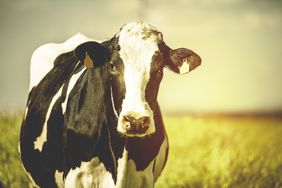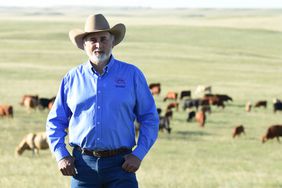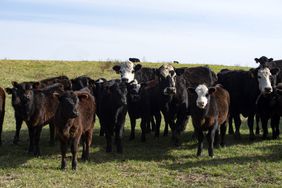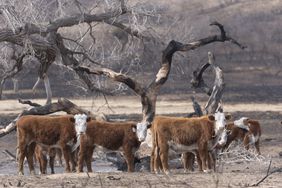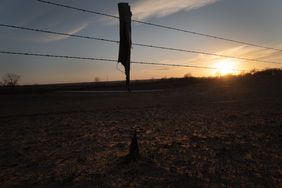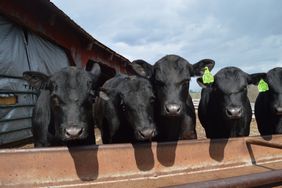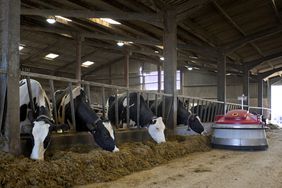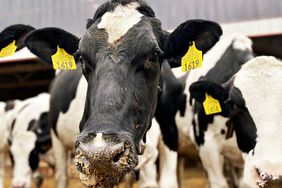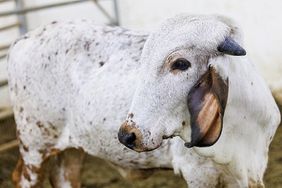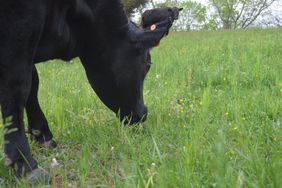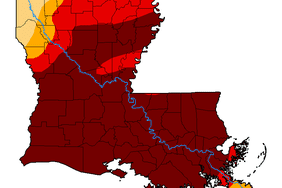:max_bytes(150000):strip_icc()/IMG_3591-2-2000-7c6af4e668cd4ec5a6a791f9f3c28466.jpg)
By Lisa Moser, research and Extension news service
Good nutrition is important to overall health, and it begins at birth, said the experts at the Kansas State University Beef Cattle Institute on a recent Cattle Chat podcast where they discussed the importance of the calves nursing within the first 24 hours of life.
"Colostrum is the first milk that the calf gets from its mother that contains a lot of immunity to set it up for the first 4-5 months of life," said K-State veterinarian Brad White. "As soon as the calf starts drinking, it has 12-24 hours to absorb the colostrum before its gut closes."
To help facilitate the delivery of colostrum to the calf, veterinarian Bob Larson said there needs to be selection pressure put on teat size and udder structure.
"I want the cows to deliver the colostrum, so I am going to retain females that have a good mothering ability along with a quality udder," Larson said.
Another tip is to make sure the calf completely nurses all the quarters of the udder, White said.
"Once the calf starts to nurse, make sure they get a full dose of colostrum because once milk enters their gut, the process of closing begins," he said.
One step that producers can do to set up the cows for success is to make sure they maintain a good body condition entering the calving season and while they are nursing calves.
"Cows that are thin will produce colostrum that is of lower quality than those that are receiving good nutrition," said Phillip Lancaster, beef cattle nutritionist. "Research has shown that a calf born to a thin cow in a stressful delivery will experience a diminished absorption of the colostrum, as well."
To make sure the cows maintain their weight pre-calving, Lancaster said producers need to be sure that the energy and protein requirements are an emphasis in the supplemented ration.
Even with the best preparation, the experts agree that difficult births do happen occasionally and at a higher rate with heifers calving for the first time.
"When the female and her calf have gone through a difficult birth, often both the dam and the calf are exhausted and nursing becomes a challenge," Larson said. "This may be a time when the producer needs to intervene and supplement the colostrum."
In such a case, producers have options to consider on sourcing the colostrum.
"The best option for the colostrum is to get it from the dam herself even if that means you have to milk out the cow and give it to the calf through a bottle or tube depending on how well the calf is thriving," Lubbers said.
If that is not possible, then Lubbers recommends supplementing with a commercial replacement powder or obtaining colostrum from another cow within the herd that the producer was able to collect earlier in the calving season.
"Because of the biosecurity risks, I would only use colostrum from my own herd or provide it by way of a commercial supplement," Lubbers said.
Larson agreed with this recommendation, adding: "Make sure to keep some commercial supplement on hand because the timing of when this needs to be delivered is important."
To hear the full discussion, listen to the Cattle Chat podcast online or through your preferred streaming platform.
